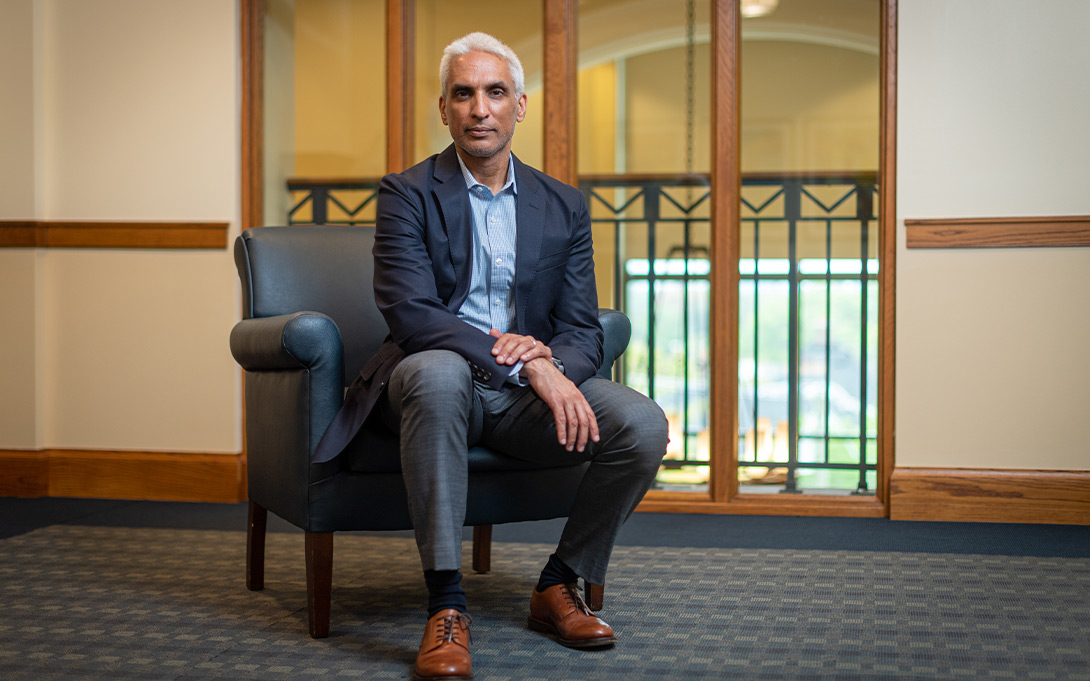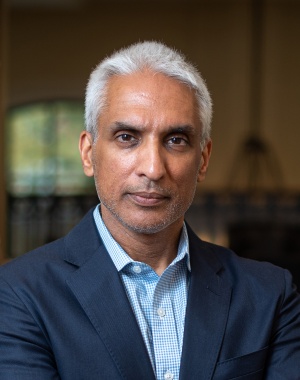
As the conflict between Iran and Israel surged and then abated, Ford School Professor of Practice Javed Ali was widely quoted for his insights into the practical and strategic implications of the confrontation.
In the run-up to hostilities, The National News Desk quoted his analysis: "From the Israeli perspective, this is unlike other moments over the last few decades — where they've also been equally concerned about wherever Iran was in its nuclear program, and opportunities to do something similar — but it is because that Axis of Resistance has been hammered relentlessly... It's this combination of factors that are now assessing are more in Israel's favor."
After the first Israeli attacks, Ali said on CBC, "There are many ways Iran could respond to Israel's attacks despite its considerable losses, including cyberattacks, disrupting naval shipping, and terrorist attacks through either its own military forces or its proxies. And history has shown Iran's willingness to use those options."
While awaiting the results of the first air strikes, Ali predicted an Iranian response. The response "may not be in the region," he told CBS Detroit.
When news broke of Israeli targeting Iranian officials, Ali told Bloomberg Radio, "It's certainly an escalation between Israel and Iran, the fact that several very senior Iranian military officials and or nuclear scientists have been part of that nuclear program within the Islamic Revolutionary Guard Corps have been apparently killed or injured. And so Israel has really hit Iran hard, both in terms of the physical infrastructure of Iran's nuclear program, but also the human capital of it, and done it in one fell swoop."
Ali did predict that Iran would not escalate overtly after the Israeli strikes, pointing to both the damage that had occurred and the limits of their own weapons, in a discussion on Channel News Asia.
When President Trump gave his "two weeks" notice, Ali told ABC News that negotiations were still possible "based on the president's comments," though the two sides were far apart in their views on developing nuclear weapons.
As tensions grew, he noted the schism in the intelligence community about whether or not Iran was getting much closer to a nuclear bomb. "This a question of Israel and the U.S. having differing analytic perspectives on the same pool of that highly classified information and coming up with different analytic judgments. And that happens in the business of intelligence. Or is it that one side versus the other has just a different set of collection on Iran's nuclear program and is coming up with their own independent views?," he said on CNN.
When the U.S. bombed Iranian nuclear sites, he told CBC that is was indeed a very sophisticated operation. "The Iranian leadership are under pressure about what to do next... It is in a lose-lose situation at this point."
Regarding what options the U.S. had in the aftermath of the strikes, he said it was narrowly tailored to destroy these three nuclear facilities. He added on KCBS that it was hard to imagine a larger action., noting this is not an Iraq or Afghanistan-type of invasion.
"This has been one of the thornier issues for the United States for more than 40 years. It's difficult to know what the U.S. role will be going forward," he said on WWL.
With the sudden ceasefire, Ali welcomed it but said on Fox 2 Detroit that it was fragile, because of the ever-changing dynamics. He said it was an immediate pause that wouldn't necessarily lead to a regional "grand bargain."
In the aftermath of the ceasefire, Ali said that if Trump were serious about overthrowing the current Islamic Republic, he would need to be willing to send thousands of troops for a ground invasion that could take up to six months to reach and seize the Iranian capital, Tehran. He would also have to factor in the high probability that Iran would descend into collapse and chaos.
"The likelihood of regime change is very low. This doesn't mean the Iranian regime isn't unpopular; it clearly is. Over the decades, it's become clear that the country isn't unified in its support for the Islamic Republic," he told UOL Brazil. "But at the same time, there doesn't seem to be any possibility of a popular revolution, not even a minority government or a parallel coalition that could immediately step in and come to power."
“[Iran is] in such a bad position any way you look at it,” Ali told The National News Desk. “This is the moment — if they don't go back to the table either on the nuclear deal or some other kind of diplomatic agreement that gets them out of this corner that they backed themselves into through all these strategic mistakes, then these other aspects of what could happen with Iran like the regime changing, or a popular uprising.”
Tensions rise in the Middle East on concerns Israel may bomb Iran's nuclear facilities, The National News Desk, June 12, 2025
Iran still has many options, says analyst, CBC, June 13, 2025
Israel launches airstrikes on Iran, attacking nuclear sites, CBS Detroit, June 13, 2025
Israel Strikes Iran’s Nuclear Sites, Key Military Chief Killed, Oil & Gold Surge, Bloomberg Radio, June 13, 2025
Israel, Iran expected to ‘continue to trade punches’ but conflict unlikely to expand: Analyst, CNA, June 19, 2025
As the world awaits Pres. Trump’s decision on whether the U.S. will join Israel in military action against Iran, the conflict is deepening divisions, ABC News, June 19, 2025
Probability of U.S.-Iran Talks, CNN, June 21, 2025
U.S. strike on Iran not about ‘regime change,’ U.S. defence secretary says, CBC, June 22, 2025
How might Iran retaliate against Trump's attacks?, KCBS, June 22, 2025
'Airstrike won't topple Iran's regime, only US troops can,' says ex-FBI, UOL Brazil, June 24, 2025
Shaky ceasefire between Iran & Israel, Fox 2 Detroit, June 24, 2025
The US struck, and Iran responded. What happens next? WWL, June 24, 2025
Iran backed further into corner despite questions about damage to nuclear program, The National News Desk, June 25, 2025
